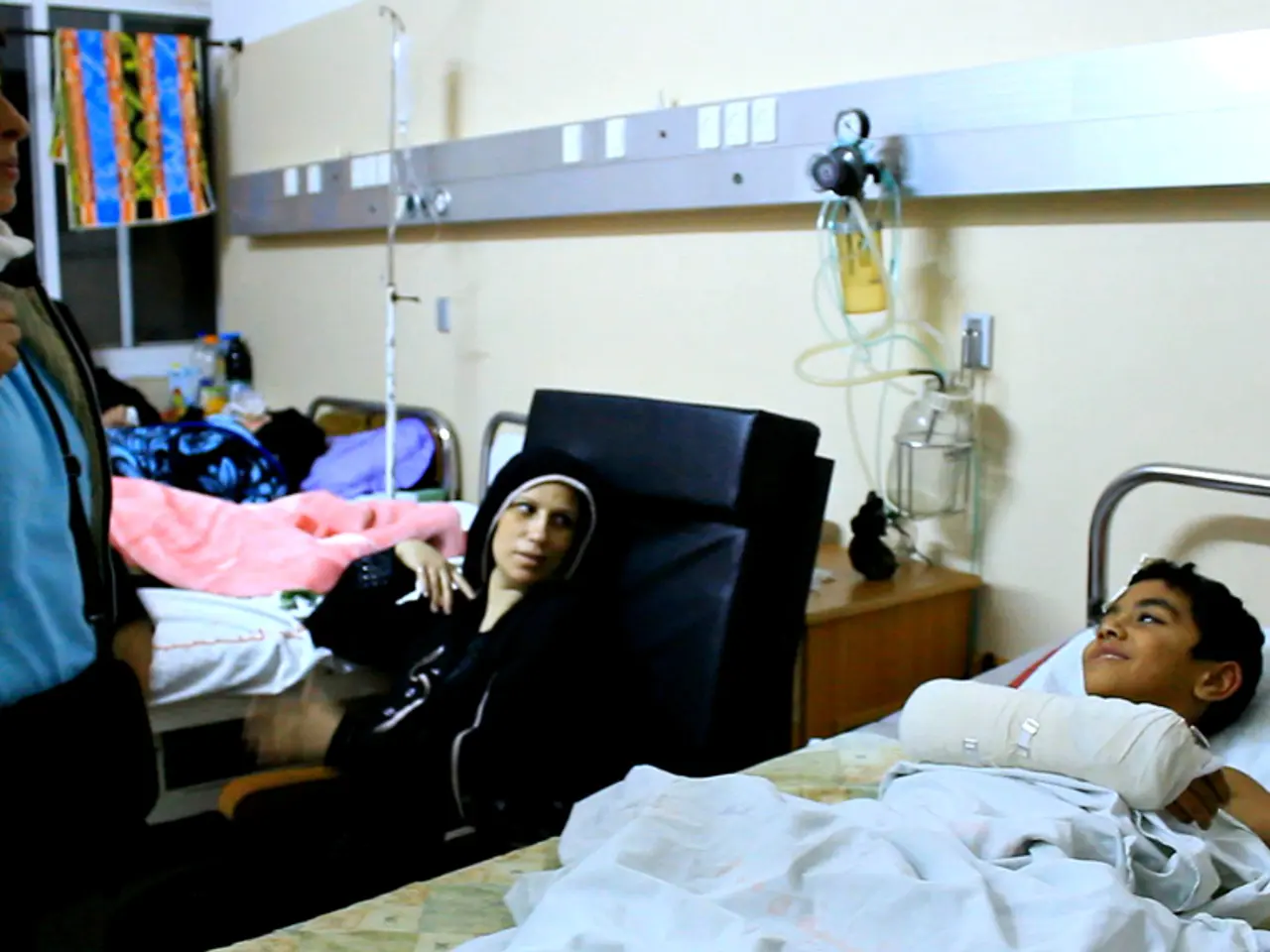Identifying Early Signs of Newborn Health Issues in Nigeria
In Nigeria, neonatal infections such as sepsis, pneumonia, and meningitis pose significant concerns for newborn health. To combat these issues, a multi-faceted approach is essential to improve early recognition and intervention of common newborn illnesses, including neonatal infections, respiratory distress syndrome (RDS), jaundice, and prematurity-related conditions.
Strengthening neonatal care systems and policies is a crucial first step. Nigeria's Child Survival Action Plan (2025–2029) aims to address bottlenecks in healthcare delivery, including neonatal infection control and management of birth complications like asphyxia and trauma. This involves improving primary healthcare facilities to provide standardized neonatal care, enhancing health workforce capacity, and ensuring availability of essential drugs and diagnostics.
Early detection and diagnosis are key to saving lives. Improved training for healthcare workers at all levels in recognizing danger signs promptly is necessary. Protocols for early sepsis screening and managing prematurity complications should be integrated into newborn care guidelines. Simple diagnostic tools such as pulse oximetry for RDS and transcutaneous bilirubin meters for jaundice can assist frontline workers.
Expanding community and antenatal interventions can also reduce prematurity and associated morbidity. Enhanced antenatal care with infection screening and risk factor identification helps prevent preterm births and infection transmission. Community health workers play a critical role in educating families on recognizing neonatal danger signs and facilitating timely referrals to health facilities.
Improving infection prevention and control (IPC) practices in healthcare settings is vital to reduce hospital-acquired infections. This includes proper hygiene, sterilization, and antibiotic stewardship.
Ongoing data collection on neonatal outcomes and causes of death is important for targeted interventions. Regular audits and surveillance systems can identify gaps in early recognition and guide resource allocation.
Integrating multidisciplinary and systematic approaches is necessary since neonatal illnesses require complex management. This includes expanding Neonatal Intensive Care Units (NICUs) capacity and referral systems for critically ill neonates.
Promoting maternal nutrition programs is essential to provide essential nutrients during pregnancy. Educating communities on proper hygiene practices, including handwashing, clean water usage, and maintaining clean living environments, is crucial. Education should focus on proper hygiene practices, breastfeeding, and recognizing signs of illness.
Common newborn illnesses in Nigeria include respiratory infections, diarrhoea, malaria, and neonatal jaundice. Proper prenatal care, exclusive breastfeeding, immunization, hygiene and sanitation practices, and skin-to-skin contact are effective strategies to reduce the incidence of newborn illnesses.
Early recognition, prevention, and access to healthcare can significantly reduce newborn mortality rates in Nigeria. Jaundice can be addressed through phototherapy, which helps break down excess bilirubin. Increasing access to healthcare, especially in rural areas, is essential to ensure timely healthcare for newborns.
Creating awareness among parents and caregivers about the importance of seeking medical attention for their newborns is crucial. Adequate staffing and equipment in NICUs are crucial for providing optimal care for premature newborns. Premature infants require specialized care in neonatal intensive care units (NICUs).
Lack of access to healthcare facilities, poor nutrition during pregnancy, low birth weight, inadequate immunization, and improper hygiene and sanitation are risk factors for newborn illnesses in Nigeria. Implementing improved healthcare policies, infrastructure, and training for healthcare providers can aid in reducing the prevalence and severity of newborn illnesses.
Regular check-ups and screenings should be conducted to detect potential health issues promptly. Strengthening immunization campaigns should target both parents and healthcare providers. Access to clean water and sanitation services is a challenge for many communities in Nigeria.
Recognizing and addressing common newborn illnesses early is crucial for the well-being of Nigerian infants. Respiratory Distress Syndrome (RDS) is a common illness among Nigerian newborns, leading to breathing difficulties.
- Strengthening neonatal care systems and policies, such as Nigeria's Child Survival Action Plan (2025–2029), is essential to reduce bottlenecks in healthcare delivery and address newborn infections.
- Improving the education of families on recognizing neonatal danger signs, including proper hygiene practices, breastfeeding, and signs of illness, is crucial for early detection and intervention of newborn illnesses.
- Preventing preterm births and infection transmission is possible with enhanced antenatal care that includes infection screening and risk factor identification, as well as community health worker engagement for timely referrals to healthcare facilities.
- To combat neonatal infection, it's vital to implement improved infection prevention and control (IPC) practices in healthcare settings, such as proper hygiene, sterilization, and antibiotic stewardship.
- Integrating multidisciplinary and systematic approaches, like expanding Neonatal Intensive Care Units (NICUs) capacity and referral systems for critically ill newborns, is necessary for the complex management of common neonatal illnesses.
- Ensuring the availability of essential drugs and diagnostics, developing standardized neonatal care practices, and enhancing health workforce capacity are necessary components of improving primary healthcare facilities to provide optimal care for newborns.
- Raising awareness among parents and caregivers about the importance of seeking medical attention for their newborns, conducting regular check-ups and screenings, and promoting immunization campaigns are key elements in reducing newborn mortality rates, especially in rural areas.





